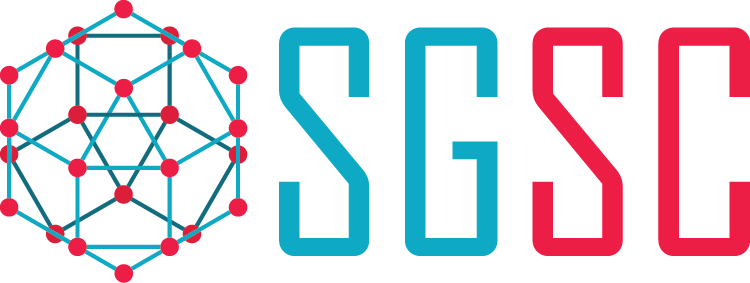EU Digital Library, Google Scholar, DBLP, and more

Participants will still be able to enjoy unique interactive benefits – learn more.
We are pleased to invite you to submit your paper




Participate online and join the conference
from wherever you are!
Get the same full publication and indexing, enjoy EAI’s fair evaluation and recognition, present your paper to a global audience, and experience virtual meetings live as well as
on-demand from the safety and comfort of your home.
Although we will miss having everyone meet and connect in person, we feel strongly that knowledge exchange must continue, if not more so. That is why we have equipped our online conferences with live viewing with chat, virtual Q&A, and a multitude of other measures to provide you with a great experience.
Find out what EAI conference live streams look like and discover unique benefits
that online participation brings you - learn more.
Find out more about EAI Index
Paper Submission is now open for EAI SGSC 2022! Check out the Call for Papers.SGSC 2022 supports revolutionary EAI Community Review, find out more here.Every author receives EAI Index credits – regardless of acceptance. Learn more about EAI’s Recognition Program here.Get real feedback on your presentation from other registrants via EAI Compass.
Let the EAI Community help you build your career with collaborative research, objective evaluation, and fair recognition:
The purpose of the EAI International Conference on Smart Grids for Smart Cities (SGSC 2022) is to bring together researchers, engineers, designers, developers and practitioners interested in the advances and applications in smart cities, smart grids, and cyber-physical systems and technologies.
The smart city concept is introduced as an optimal solution for overcoming urbanization problems in today’s digital world. Smart grid technologies and cyber-physical systems have numerous benefits for smart cities that deploy them, either on their own or in cooperation with other technologies. However, there are numerous challenges on the way that should be addressed to take advantages of these technologies for reliable and efficient deployment in smart cities. The focus of this conference is on the challenges in smart grid and cyber physical system development to address the issues that arise more often in smart cities.
In addition to novel research contributions, papers describing advanced prototypes, systems, tools and techniques and general survey papers indicating future directions are also encouraged.
All registered papers will be submitted for publishing by Springer and made available through SpringerLink Digital Library.
Proceedings will be submitted for inclusion in leading indexing services, such as Web of Science, Compendex, Scopus, DBLP, EU Digital Library, Google Scholar, IO-Port, MathSciNet, Inspec, and Zentralblatt MATH.
Authors of selected best accepted and presented papers will be invited to submit an extended version to:
All accepted authors are eligible to submit an extended version in a fast track of:
Additional publication opportunities:
This event is organized by EAI.
EAI – European Alliance for Innovation is a non-profit organization and a professional community established in cooperation with the European Commission to empower the global research and innovation, and to promote cooperation between European and International ICT communities.
EAI’s vision is to foster excellence in research and innovation on the principles of transparency, objectivity, equality, and openness. Our guiding principle is community cooperation to create better research, provide fair recognition of excellence and transform best ideas into commercial value proposition.
EAI‘s mission is to create an environment that rewards excellence transparently, and builds recognition objectively regardless of age, economic status or country of origin, where no membership fees or closed door committees stand in the way of your research career.
Through these shared values, EAI leads the way toward advancing the world of research and innovation, empowering individuals and institutions for the good of society to fully benefit from the digital revolution.

